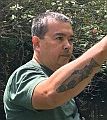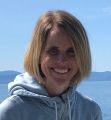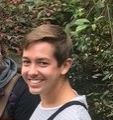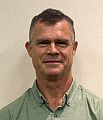BOWKER CREEK BLUEPRINT IS A BEACON OF INSPIRATION: “You need layers of champions. You need a champion in the community. You need a champion in the municipality. You need a champion to keep everybody aware and moving forward,” stated Adriane Pollard, Manager of Environmental Services with the District of Saanich

“With the turnover in municipal staff, I have become the municipal champion for Bowker Creek. I remind colleagues of the municipal policies and that the Blueprint is a Council-endorsed document. Every time I review a development for environmental impacts, we identify that it is in the Bowker watershed, and we state what the Blueprint says about the subject reach. Also, whenever the municipality undertakes capital and maintenance projects, we make sure to refer to the Blueprint and state what it says,” stated Adriane Pollard.
FINANCIAL CASE FOR BOWKER CREEK DAYLIGHTING: “Asset management and ecological frameworks are merging closer than ever before,” stated Lesley Hatch, Senior Manager of Water Resources with the District of Saanich, when the Partnership of Water Sustainability released its report on the sixth in the series of EAP demonstration application projects undertaken as part of a multi-year program of applied research (October 2021)

EAP, the Ecological Accounting Process, has been applied to the 100-Year Action Plan for daylighting Bowker Creek. “This is good news as Saanich continues to catalogue and valuate storm water natural assets with the intent of establishing resources to steward both hard, linear infrastructure and natural systems alike. Modern asset methodologies can sync well with other frameworks, such as EAP, which provides additional tools and metrics to improve maintenance and management across the District, and in collaboration with our regional partners on such initiatives as the Bowker Creek Initiative,” stated Lesley Hatch.
BOWKER CREEK BLUEPRINT IS A BEACON OF INSPIRATION: “The outdoor classroom is a learning space. For my students, it is an extension of our classroom. It becomes more engaging for them because it is real,” stated Derek Shrubsole, science teacher at Oak Bay High School and member of the Friends of Bowker Creek

“What I have now is an actual outdoor, naturalized learning space. I do not have to show a video or read a book to teach a lesson. We can go out and see it in person. The students can experience it. When you can take kids outside and engage them in that space, it becomes more engaging for them because it’s real. Before this project was done, there was really nothing around other than grass fields. We are really fortunate. We can do real science with them. Students want authenticity to what they are studying,” stated Derek Shrubsole.
BOWKER CREEK BLUEPRINT IS A BEACON OF INSPIRATION: “All these people are my teachers, and I am learning from all of them. Is this the intergenerational baton in action? Absolutely! You cannot just pick up the baton and not know where you are coming from. You need all that history,” stated Lindsey McCrank, the Capital Regional District’s Coordinator for the Bowker Creek Urban Watershed Renewal Initiative

“When new members get involved in the BCI, they will be in the position to accept the intergenerational baton just as I did. I believe the Partnership document about the Blueprint history will be useful, as a legacy resource, in helping new members get up to speed. One has to keep moving forward, transfer the knowledge to new people, and blend their experience and thoughts. Every person who is involved will alter the course of our future actions. I am excited to see where the Blueprint will lead us in the next little while,” stated Lindsey McCrank.
BOWKER CREEK BLUEPRINT IS A BEACON OF INSPIRATION: “One of my passions is to bring nature into the city so that we do not have these two distinctive zones – this is where humans live and this is where nature lives. Those two things can come together. That is my vision for Bowker Creek and why I enjoy volunteering,” stated Brandon Williamson, Friends of Bower Creek, when describing the mission for restoration of a degraded urban stream

“I grew up in Port Alberni, a small town and am a nature lover. But I have come to realize that I am a city person. And being both a city person and a nature person, well those two things are not irreconcilable. Over the past year, I have gained a passion for Bowker Creek and its restoration. I do understand that the work that needs to be done is a very long-term thing. I am committed and excited to volunteer over the long term to see out the vision,” stated Brandon Williamson.
BOWKER CREEK BLUEPRINT IS A BEACON OF INSPIRATION: “We are taking a new direction. We are saying that we can improve the health of Bowker. But there is still more pollution happening. We can see it happening. And so, we the Friends of Bowker Creek, are stepping it up,” stated Jessica Hartum, the Director who is leading a grass-roots water quality monitoring program

“I am a water quality person and I believe that it is a steppingstone to everything else. Water quality is close to my heart. But I understand where we are in this world and that nobody is buying in for water quality alone. In my view, water quality is a lot bigger than just the salmon. But I do recognize that water quality and fish habitat are a package. Neither one is complete without the other one. We have to do both together. When I show community volunteers the insects that are in the water and what they mean, everyone has an Ah-Ha Moment,” stated Jessica Hartum.
WATER RECONCILIATION IS ABOUT INTERWEAVING INDIGENOUS KNOWLEDGE & WESTERN SCIENCE: “Interweaving is not integration, just as equality is not about assimilation and creativity is not empirical. Interweaving is collaborative and incremental rather than a revolutionary process,” stated Michael Blackstock, Independent Indigenous Scholar and founder of the Blue Ecology Institute (October 2021)

“Blue Ecology is meant to be a companion because it augments existing Western science hydrology rather than displacing this knowledge. Collaborators identify packets of knowledge that would benefit from the interweaving process. My question for the Western science world is this: Are you prepared and willing to change your definition of water in science? This is what reconciliation really gets down to when we are talking about interweaving Indigenous knowledge and Western science,” stated Michael Blackstock.
PROGRAM BROCHURE FOR WATERSHED MOMENTS 2021 / BLUE ECOLOGY VIRTUAL SEMINAR: Partnership for Water Sustainability and NALT release panel information and registration details for ‘bridging event” during the evening of January 20, 2022

Richard Boase, Section Manager Environmental Sustainability (Operations) with the District of North Vancouver, returns as Moderator for the 4th annual event in the Watershed Moments Series. He has a deep understanding of the subject matter resulting from three decades of stewardship work through a local government lens, has an innate ability to ask the questions that get to the heart of the matter, shares his enthusiasm with panelists and audience alike and sometimes even surprises the organizers with impromptu action items.
HISTORICAL CONTEXT FOR WATERSHED MOMENTS 2021 / BLUE ECOLOGY VIRTUAL SEMINAR: “While international recognition gave Blue Ecology early credibility and profile, there was limited awareness within British Columbia of what Michael Blackstock had accomplished on the global stage,” stated Kim Stephens, Partnership for Water Sustainability, when explaining the Partnership’s commitment to mainstreaming Blue Ecology (October 2021)

“Blue Ecology has been a two-decade long journey of discovery for Michael Blackstock, highlighted by his appointment to a UNESCO Expert Panel for a 4-year term in 2008. His work on the Expert Panel resulted in an invitation to share his Blue Ecology message at an international symposium. In 2021, the Watershed Moments team embraced the Blue Ecology idea, and committed to the vision for Water Reconciliation as an outcome. This means going back to the headwaters of where we got our relationships with water and with one another wrong,” stated Kim Stephens,
YOUTH EDUCATION CONTEXT FOR WATERSHED MOMENTS 2021 / BLUE ECOLOGY VIRTUAL SEMINAR: “Ecological learning and reconciliation with Indigenous Peoples go hand in hand. We have a great deal to learn in our quest to live more gently and conscientiously here on Earth, a theme which is central to many Indigenous teachings,” stated Steph Cottell, Executive Director, Cowichan Community Land Trust (October 2021)

The 4-person panel will share their experiences in trail-blazing watershed education for youth. Michael Blackstock of the Blue Ecology Institute is joined by Linda Brooymans, Steph Cottell and Tina Willard-Stepan. Blue Ecology, the interweaving of Indigenous and Western water stewardship knowledge is the over-arching theme for the event. “It is with humbleness and deep appreciation that we invite Indigenous Elders and Knowledge Keepers to share their wisdom and help us on the path to better water ways,” stated Steph Cottell.

